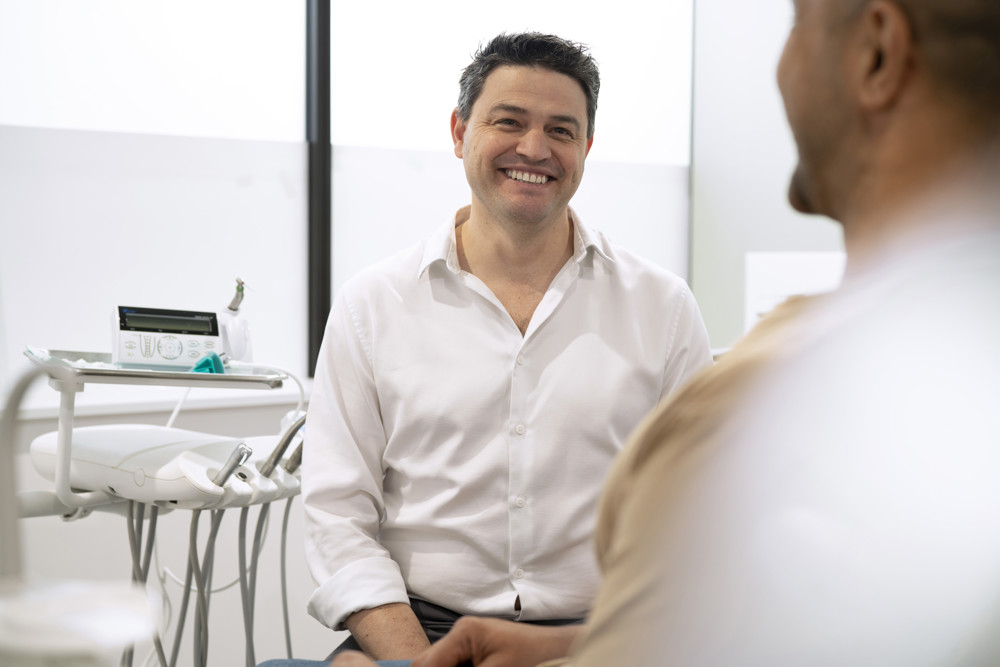Get prepared
When you book at one of our dental practices for a problem in your mouth, you want answers and advice as soon as possible. That’s understandable. It’s useful to think ahead about what your dentist will need to know to diagnose and treat you.
Generally your dentist will ask you about your medical history and then thoroughly examine your mouth, teeth, gums, jaw, tongue, throat, sinuses, ears, nose and neck. You may also need an x-ray, depending on what your dentist suspects might be the problem.
Your dentist will ask you some questions, such as:
- Do you have any pain?
- How severe is the pain?
- Where do you feel the pain?
- Do you have any mouth sores?
- Do you have any areas in your mouth that you're worried about?
Think about your answers to these questions before your appointment. Being prepared can speed up the diagnosis.

